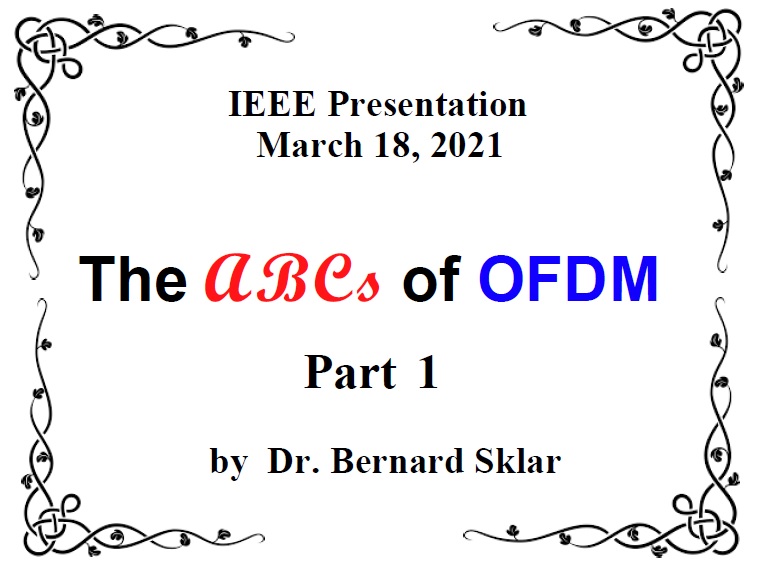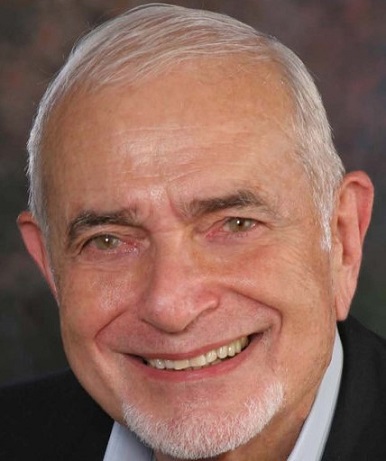IEEE COMSOC CHAPTER TECHNICAL TALK - The ABCs of Orthogonal Frequency Division Multiplexing (OFDM) Part I

This is Part I of a Two Part Talk on OFDM. The abstract below is for both Part I and II:
The main benefit of OFDM is its ability to cope with severe multipath channel conditions without the need for complex equalization filters. How does it accomplish this? The short answer: by "dividing and conquering." It partitions a high-data-rate signal into smaller low-data-rate signals so that the data can be sent over many low-rate sub-channels.
The Time/Frequency relationships are presented with a figure that facilitates a straightforward understanding of the OFDM partitioning process. We emphasize the important role of the cyclic prefix (CP). We show how it allows us to change linear convolution into circular convolution, thereby purging any transients, which helps to maintain waveform orthogonality at the receiver.
OFDM waveform synthesis is covered in detail. Also, the spectral properties of Real and Imaginary signals are reviewed. We further consider the peak-to-average power ratio (PAPR) in OFDM, and how the desire for small PAPR has given rise to a special variant of OFDM called single-carrier OFDM (SC-OFDM). Finally, we illustrate applications of this elegant technology in standards such as 802.11 and LTE.
Date and Time
Location
Hosts
Registration
-
 Add Event to Calendar
Add Event to Calendar
- Thousand Oaks, California
- United States
Speakers
 Dr. Bernie Sklar
Dr. Bernie Sklar
The ABCs of Orthogonal Frequency Division Multiplexing (OFDM)
Biography:
Dr. Bernard Sklar has over 60 years of technical experience at the following companies: Republic Aviation, Hughes Aircraft, Litton Industries, and The Aerospace Corporation. At Aerospace, he helped develop the MILSTAR satellite system, and was the principal architect for EHF Satellite Data Link Standards. Currently, he is the Director of Advanced Systems at Communications Engineering Services, a consulting company he founded in 1984. He has taught engineering courses at several universities, including the University of California, Los Angeles and the University of Southern California. He has served as an External Examiner of postgraduate studies in Digital Communi-cations at the University of Cape Town, South Africa, and has presented numerous training programs throughout the world.
Dr. Sklar has published and presented over 100 technical papers. He received the 1984 Prize Paper Award from the IEEE Communications Society for his series on digital communications, and he is the author of the book, Digital Communications: Fundamentals and Applications, 3rd Edition, Prentice‑Hall, 2021. His academic credentials include a B.S. degree in Math and Science from the University of Michigan, an M.S. degree in Electrical Engineering from the Polytechnic Institute of Brooklyn, New York, and a Ph.D. degree in engineering from the University of California, Los Angeles.
Agenda
6:30-6:45 (PST) PM Virtual Social
6:45-8:15 (PST) PM Presentation
8:15-8:30 (PST) PM Q&A
